Piano Sheet Music
 "Where words fail, music speaks." Hans Christian Andersen
"Where words fail, music speaks." Hans Christian Andersen
Arlene Schwartzkopf
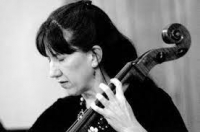 Arlene Schwartzkopf Composer.
Arlene Schwartzkopf Composer.
Yann Tiersen
 Guillaume Yann Tiersen (born 23 June 1970) is a French musician and composer known internationally for composing the score to the Jean-Pierre Jeunet movie Amélie. His music is recognized by its use of a large variety of instruments in relatively minimalist compositions, often with a touch of either European classical music or French folk music, using primarily the piano, accordion or violin together with instruments like the melodica, xylophone, toy piano, ondes martenot, harpsichord and typewriter. His musical style is reminiscent of Frédéric Chopin, Erik Satie, Philip Glass and Michael Nyman.
Guillaume Yann Tiersen (born 23 June 1970) is a French musician and composer known internationally for composing the score to the Jean-Pierre Jeunet movie Amélie. His music is recognized by its use of a large variety of instruments in relatively minimalist compositions, often with a touch of either European classical music or French folk music, using primarily the piano, accordion or violin together with instruments like the melodica, xylophone, toy piano, ondes martenot, harpsichord and typewriter. His musical style is reminiscent of Frédéric Chopin, Erik Satie, Philip Glass and Michael Nyman.
The Academy Is
 The Academy Is... was an American rock band from Chicago, Illinois, formed in 2003. Before disbanding, they were signed by the Decaydance imprint of the Fueled by Ramen label.
The Academy Is... was an American rock band from Chicago, Illinois, formed in 2003. Before disbanding, they were signed by the Decaydance imprint of the Fueled by Ramen label.
Brian Crain
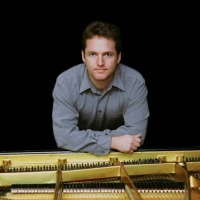 Since 1996 Brian Crain has been composing, recording and distributing music through his own record company, Crain Records, Inc.Date of birth: Hollywood, Los Angeles, California, USA Education: San Diego State University
Since 1996 Brian Crain has been composing, recording and distributing music through his own record company, Crain Records, Inc.Date of birth: Hollywood, Los Angeles, California, USA Education: San Diego State UniversityWorks with: NUB MUSIC, BrianCrain.com Records, Crain Records, Lifestyle Music Group
The Divine Comedy
 The Divine Comedy are a pop band from Northern Ireland, formed in 1989 and fronted by Neil Hannon. Hannon has been the only constant member of the group, playing, in some instances, all of the non-orchestral instrumentation except drums. To date, twelve studio albums have been released under the Divine Comedy name.
The Divine Comedy are a pop band from Northern Ireland, formed in 1989 and fronted by Neil Hannon. Hannon has been the only constant member of the group, playing, in some instances, all of the non-orchestral instrumentation except drums. To date, twelve studio albums have been released under the Divine Comedy name.
Franz Liszt
 Franz Liszt (Hungarian: Ferencz Liszt, in modern usage Ferenc Liszt, from 1859 to 1865 officially Franz Ritter von Liszt) (October 22, 1811 – July 31, 1886) was a Hungarian composer, virtuoso pianist and teacher. He was also the father-in-law of Richard Wagner. In 1865 he became abbot in the Roman Catholic Church.
Franz Liszt (Hungarian: Ferencz Liszt, in modern usage Ferenc Liszt, from 1859 to 1865 officially Franz Ritter von Liszt) (October 22, 1811 – July 31, 1886) was a Hungarian composer, virtuoso pianist and teacher. He was also the father-in-law of Richard Wagner. In 1865 he became abbot in the Roman Catholic Church.Liszt became renowned throughout Europe during the 19th century for his great skill as a performer. He was said by his contemporaries to have been the most technically advanced pianist of his age and perhaps the greatest pianist of all time. He was also an important and influential composer, a notable piano teacher, a conductor who contributed significantly to the modern development of the art, and a benefactor to other composers and performers, notably Richard Wagner, Hector Berlioz, Camille Saint-Saëns, Edvard Grieg and Alexander Borodin.
As a composer, Liszt was one of the most prominent representatives of the "Neudeutsche Schule" ("New German School"). He left behind a huge and diverse body of work, in which he influenced his forward-looking contemporaries and anticipated some 20th-century ideas and trends. Some of his most notable contributions were the invention of the symphonic poem, developing the concept of thematic transformation as part of his experiments in musical form and making radical departures in harmony.
Vinicius de Moraes
 Marcus Vinicius da Cruz e Mello Moraes, also known as Vinicius de Moraes and nicknamed O Poetinha, was a Brazilian poet, lyricist, essayist, and playwright. He served as a diplomat, composed bossa nova music, and recorded several albums.
Marcus Vinicius da Cruz e Mello Moraes, also known as Vinicius de Moraes and nicknamed O Poetinha, was a Brazilian poet, lyricist, essayist, and playwright. He served as a diplomat, composed bossa nova music, and recorded several albums.
Elton John
 Sir Elton Hercules John CBE (born Reginald Kenneth Dwight on 25 March 1947) is an English pop/rock singer, composer and pianist.
Sir Elton Hercules John CBE (born Reginald Kenneth Dwight on 25 March 1947) is an English pop/rock singer, composer and pianist.In his four-decade career, John has been one of the dominant forces in rock and popular music, especially during the 1970s. He has sold over 200 million records, making him one of the most successful artists of all time. He has more than 50 Top 40 hits including seven consecutive No. 1 U.S. albums, 59 Top 40 singles, 16 Top 10, four No. 2 hits, and nine No. 1 hits. He has won five Grammy awards and one Academy Award. His success has had a profound impact on popular music and has contributed to the continued popularity of the piano in rock and roll. In 2004, Rolling Stone ranked him #49 on their list of the 100 greatest artists of all time.
Some of the characteristics of John's musical talent include an ability to quickly craft melodies for the lyrics of songwriting partner Bernie Taupin, his former rich tenor (now baritone) voice, his classical and gospel-influenced piano, the aggressive orchestral arrangements of Paul Buckmaster among others and the flamboyant fashions, outlandishly excessive eyeglasses, and on-stage showmanship, especially evident during the 1970s.
John was inducted into the Rock and Roll Hall of Fame in 1994. He has been heavily involved in the fight against AIDS since the late 1980s, and was knighted in 1998. He entered into a civil partnership with David Furnish on 21 December 2005 and continues to be a champion for LGBT social movements. On April 9, 2008, John held a benefit concert for Hillary Clinton's presidential campaign, raising $2.5 million.
Scott Joplin
 Scott Joplin (between June 1867 and January 1868 – April 1, 1917) was an American musician and composer of ragtime music. He remains the best-known ragtime figure and is regarded as one of the three most important composers of classic ragtime, along with James Scott and Joseph Lamb, and also a precursor to Stride Piano. Decades after his death, his music enjoyed a considerable surge of popularity and critical respect in the 1970s, especially for his most famous composition, "The Entertainer."
Scott Joplin (between June 1867 and January 1868 – April 1, 1917) was an American musician and composer of ragtime music. He remains the best-known ragtime figure and is regarded as one of the three most important composers of classic ragtime, along with James Scott and Joseph Lamb, and also a precursor to Stride Piano. Decades after his death, his music enjoyed a considerable surge of popularity and critical respect in the 1970s, especially for his most famous composition, "The Entertainer."Even at the time of publication, Joplin's publisher John Stark was claiming that the rags had obtained classical status, and "lifted ragtime from its low estate and lined it up with Beethoven and Bach".
Alex North
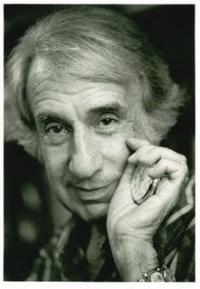 Alex North (December 4, 1910 – September 8, 1991) was an American composer who wrote the first jazz-based film score (A Streetcar Named Desire) and one of the first modernist scores written in Hollywood (Viva Zapata!).
Alex North (December 4, 1910 – September 8, 1991) was an American composer who wrote the first jazz-based film score (A Streetcar Named Desire) and one of the first modernist scores written in Hollywood (Viva Zapata!).Born Isadore Soifer in Chester, Pennsylvania, North was an original composer probably even by the classical music standards of the day. However, he managed to integrate his modernism into typical film music leitmotif structure, rich with themes. One of these became the famous song, "Unchained Melody". Nominated for 14 Oscars but unsuccessful each time, North and Ennio Morricone are the only film composers to receive the Lifetime Achievement Academy Award. North's frequent collaborator as orchestrator was the avant-garde composer Henry Brant. He won the 1968 Golden Globe award for his music to The Shoes of the Fisherman.
His best-known film scores include The Rainmaker (1956), Spartacus (1960), The Misfits (1961),The Children's Hour (1961) Cleopatra (1963), Who's Afraid of Virginia Woolf? (1966), and The Devil's Brigade (1968). His commissioned score for Stanley Kubrick's 2001: A Space Odyssey (1968) was discarded by the director, but has since been released on CD.
Though North is best known for his work in Hollywood, he spent years in New York writing music for the stage; he composed the score, by turns plaintive and jarring, for the original Broadway production of Death of a Salesman. It was in New York that he met Elia Kazan (director of Salesman), who brought him to Hollywood in the '50s. North was one of several composers who brought the influence of contemporary concert music into film, in part marked by an increased use of dissonance and complex rhythms. But there is also a lyrical quality to much of his work which may be connected to the influence of Aaron Copland, with whom he studied.
His classical works include a Rhapsody for Piano, Trumpet obbligato and Orchestra. He was nominated for a Grammy Award for his score for the 1976 television miniseries Rich Man, Poor Man. North is also known for his opening to the CBS television anthology series Playhouse 90.
Duke Ellington
 Edward Kennedy "Duke" Ellington (April 29, 1899 â May 24, 1974) was an American composer, pianist, and bandleader.
Edward Kennedy "Duke" Ellington (April 29, 1899 â May 24, 1974) was an American composer, pianist, and bandleader.Recognized during his life as one of the most influential figures in jazz, if not in all American music, Ellington's reputation has increased since his death, including a special award citation from the Pulitzer Prize Board.
Ellington called his style and sound "American Music" rather than jazz, and liked to describe those who impressed him as "beyond category", including many of the musicians who served with his orchestra, some of whom were themselves considered among the giants of jazz and remained with Ellington's orchestra for decades. While many were noteworthy in their own right, it was Ellington that melded them into one of the most well-known orchestral units in the history of jazz. He often composed specifically for the style and skills of these individuals, such as "Jeep's Blues" for Johnny Hodges, "Concerto for Cootie" ("Do Nothing Till You Hear from Me") for Cootie Williams and "The Mooche" for Tricky Sam Nanton. He also recorded songs written by his bandsmen, such as Juan Tizol's "Caravan" and "Perdido" which brought the "Spanish Tinge" to big-band jazz. After 1941, he frequently collaborated with composer-arranger Billy Strayhorn, who he called his alter-ego.
One of the twentieth century's best-known African-American celebrities, Ellington recorded for many American record companies, and appeared in several films. Ellington and his orchestra toured the United States and Europe regularly before and after World War II. Ellington led his band from 1923 until his death in 1974. His son Mercer Ellington took over the band until his death from cancer in 1996. Paul Ellington, Mercer's youngest son, took over the Orchestra from there and after his mother's passing took over the Estate of Duke and Mercer Ellington.
Mika Nakashima
 Mika Nakashima (中島 美嘉, Nakashima Mika, born February 19, 1983) is a Japanese singer and actress. Five of her studio albums, one of her mini-albums and one of her compilation albums have reached number one in Japan's Oricon album chart. She also embarked on an acting career, most notably as Nana Osaki in the live action film adaptations of Nana. She sold 10 million records in Japan.
Mika Nakashima (中島 美嘉, Nakashima Mika, born February 19, 1983) is a Japanese singer and actress. Five of her studio albums, one of her mini-albums and one of her compilation albums have reached number one in Japan's Oricon album chart. She also embarked on an acting career, most notably as Nana Osaki in the live action film adaptations of Nana. She sold 10 million records in Japan.
Ai Yori Aoshi
 Ai Yori Aoshi (藍より青し, "Bluer Than Indigo") is a Japanese manga series written and illustrated by Kou Fumizuki. The manga was serialized in Hakusensha's Young Animal magazine from 1998 to 2005 and the chapters collected into 17 tankōbon volumes. It is a love story between two characters who have not seen each other in years, but were once childhood friends.An anime television series adaptation was animated by J.C.Staff and directed by Masami Shimoda, with Kenichi Kanemaki handling series composition, Kazunori Iwakura designing the characters and Toshio Masuda composing the music. The anime was broadcast on Fuji TV in 2002. A second season titled Ai Yori Aoshi: Enishi (藍より青し ~縁~) was set two years later and aired in 2003. There are 37 episodes total, counting an alternate-continuity Christmas special. The anime was released in North America by Geneon and the manga was released in English by Tokyopop. Four visual novels were also released for the PlayStation 2 and Windows 98.
Ai Yori Aoshi (藍より青し, "Bluer Than Indigo") is a Japanese manga series written and illustrated by Kou Fumizuki. The manga was serialized in Hakusensha's Young Animal magazine from 1998 to 2005 and the chapters collected into 17 tankōbon volumes. It is a love story between two characters who have not seen each other in years, but were once childhood friends.An anime television series adaptation was animated by J.C.Staff and directed by Masami Shimoda, with Kenichi Kanemaki handling series composition, Kazunori Iwakura designing the characters and Toshio Masuda composing the music. The anime was broadcast on Fuji TV in 2002. A second season titled Ai Yori Aoshi: Enishi (藍より青し ~縁~) was set two years later and aired in 2003. There are 37 episodes total, counting an alternate-continuity Christmas special. The anime was released in North America by Geneon and the manga was released in English by Tokyopop. Four visual novels were also released for the PlayStation 2 and Windows 98.
Voctave
 Voctave Musical Albums: The Spirit of the Season, Somewhere There's Music, Voctave, Snow, Ghost Ornithology
Voctave Musical Albums: The Spirit of the Season, Somewhere There's Music, Voctave, Snow, Ghost OrnithologyRecord labels: Jamey Ray Music, EISENBERG Edition Musicale, Jamey Ray Music & Royal Mouse Music
Genres: Vocal/Easy Listening, Rock
Pixinguinha
 Alfredo da Rocha Viana Filho, known as Pixinguinha (Portuguese: ; April 23, 1897 – February 17, 1973) was a Brazilian composer, arranger, flautist and saxophonist born in Rio de Janeiro. Pixinguinha is considered one of the greatest Brazilian composers of popular music, particularly within the genre of music known as choro. By integrating the music of the older choro composers of the 19th century with contemporary jazz-like harmonies, Afro-Brazilian rhythms, and sophisticated arrangements, he introduced choro to a new audience and helped to popularize it as a uniquely Brazilian genre.
Alfredo da Rocha Viana Filho, known as Pixinguinha (Portuguese: ; April 23, 1897 – February 17, 1973) was a Brazilian composer, arranger, flautist and saxophonist born in Rio de Janeiro. Pixinguinha is considered one of the greatest Brazilian composers of popular music, particularly within the genre of music known as choro. By integrating the music of the older choro composers of the 19th century with contemporary jazz-like harmonies, Afro-Brazilian rhythms, and sophisticated arrangements, he introduced choro to a new audience and helped to popularize it as a uniquely Brazilian genre.
Eric Whitacre
 Eric Edward Whitacre (born January 2, 1970) is an American composer, conductor, and speaker known for his choral, orchestral, and wind ensemble music. In March 2016, he was appointed as Los Angeles Master Chorale's first artist-in-residence at the Walt Disney Concert Hall.
Eric Edward Whitacre (born January 2, 1970) is an American composer, conductor, and speaker known for his choral, orchestral, and wind ensemble music. In March 2016, he was appointed as Los Angeles Master Chorale's first artist-in-residence at the Walt Disney Concert Hall.
Hello Dolly!
 Hello, Dolly! is a 1964 musical with lyrics and music by Jerry Herman and a book by Michael Stewart, based on Thornton Wilder's 1938 farce The Merchant of Yonkers, which Wilder revised and retitled The Matchmaker in 1955. The musical follows the story of Dolly Gallagher Levi, a strong-willed matchmaker, as she travels to Yonkers, New York to find a match for the miserly "well-known unmarried half-a-millionaire" Horace Vandergelder.
Hello, Dolly! is a 1964 musical with lyrics and music by Jerry Herman and a book by Michael Stewart, based on Thornton Wilder's 1938 farce The Merchant of Yonkers, which Wilder revised and retitled The Matchmaker in 1955. The musical follows the story of Dolly Gallagher Levi, a strong-willed matchmaker, as she travels to Yonkers, New York to find a match for the miserly "well-known unmarried half-a-millionaire" Horace Vandergelder.Hello, Dolly! was first produced on Broadway by David Merrick in 1964, winning 10 Tony Awards, including Best Musical. This set a record which the play held for 37 years. The show album Hello, Dolly! An Original Cast Recording was inducted into the Grammy Hall of Fame in 2002. The album reached number one on the Billboard album chart on June 6, 1964, and was replaced the next week by Louis Armstrong's album Hello, Dolly! Louis Armstrong also was featured in performances of the show on Broadway to perform a small part of the song "Hello, Dolly!".
The show has become one of the most enduring musical theater hits, with four Broadway revivals and international success. It was also made into the 1969 film Hello Dolly! which won three Academy Awards, and was nominated in four other categories.
Wizet
 Wizet is a game development studio located in Seoul, South Korea, and is popular for its hit game, MapleStory. Wizet developed a franchise system and expanded its services to Japan, China, Thailand, Malaysia, Singapore, Taiwan, the USA, Europe, and Brazil. Eventually, Wizet reached the global world after having finished developing key features of MapleStory.
Wizet is a game development studio located in Seoul, South Korea, and is popular for its hit game, MapleStory. Wizet developed a franchise system and expanded its services to Japan, China, Thailand, Malaysia, Singapore, Taiwan, the USA, Europe, and Brazil. Eventually, Wizet reached the global world after having finished developing key features of MapleStory.Carlos Guastavino
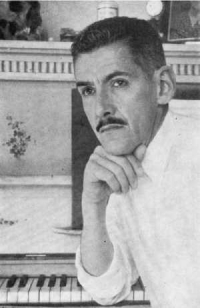 Carlos Guastavino was one of the foremost Argentine composers of the 20th century. His production amounted to over 500 works, most of them songs for piano and voice, many still unpublished. His style was quite conservative, always tonal and lusciously romanti
Carlos Guastavino was one of the foremost Argentine composers of the 20th century. His production amounted to over 500 works, most of them songs for piano and voice, many still unpublished. His style was quite conservative, always tonal and lusciously romanti
Walter Donaldson
 Walter Donaldson (February 15, 1893 – July 15, 1947) was an American prolific popular songwriter and publishing company founder, composing many hit songs of the 1910s, 1920s, 1930s, and 1940s, that have become standards and form part of the Great American Songbook.
Walter Donaldson (February 15, 1893 – July 15, 1947) was an American prolific popular songwriter and publishing company founder, composing many hit songs of the 1910s, 1920s, 1930s, and 1940s, that have become standards and form part of the Great American Songbook.
Madonna
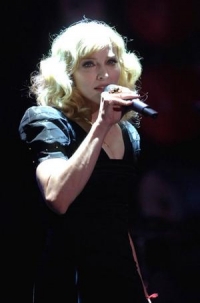 Madonna Louise Ciccone Ritchie (born August 16, 1958), known as Madonna, is an American recording artist and entertainer. Born in Bay City, Michigan and raised in Rochester Hills, Michigan, Madonna moved to New York City for a career in modern dance. After performing as member of the pop musical groups Breakfast Club and Emmy, she released her self-titled debut album in 1983, and then produced three consecutive number-one studio albums on the Billboard 200 in the 1980s.
Madonna Louise Ciccone Ritchie (born August 16, 1958), known as Madonna, is an American recording artist and entertainer. Born in Bay City, Michigan and raised in Rochester Hills, Michigan, Madonna moved to New York City for a career in modern dance. After performing as member of the pop musical groups Breakfast Club and Emmy, she released her self-titled debut album in 1983, and then produced three consecutive number-one studio albums on the Billboard 200 in the 1980s.Madonna is known for her works that explore religious symbolism and sexual themes which also drew criticism from the Vatican in the late 1980s. In 1992, she founded an entertainment company, Maverick, which published a book of photographs (Sex). She also released a studio album (Erotica) and starred in a film (Body of Evidence) with erotic themes. These works generated negative publicity and coincided with a fall in commercial sales in the 1990s. Madonna's career was revived in 1998, when the release of her album Ray of Light garnered critical acclaim. She subsequently made four consecutive number-one studio albums.
Madonna has acted in 22 films. Although several failed critically and commercially, she earned a Golden Globe Award for her role in the 1996 film Evita. Divorced from actor Sean Penn, Madonna bore a daughter by personal trainer Carlos Leon before marrying film director Guy Ritchie. She and Richie have a son and in 2008 they adopted a second, Malawian David Banda, over media allegations they violated that country's adoption laws.
Zucchero Fornaciari
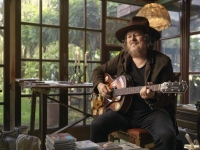 Adelmo Fornaciari Cavaliere di Gran Croce OMRI (Italian pronunciation: ; born 25 September 1955), more commonly known by his stage name Zucchero Fornaciari or simply Zucchero (pronounced ), is an Italian singer-songwriter and musician. His stage name is the Italian word for "sugar", as his elementary teacher used to call him. His music is largely inspired by gospel, soul, blues and rock music, and alternates between Italian ballads and more rhythmic R&B-boogie-like pieces. He is credited as the "father of Italian blues", introducing blues to the big stage in Italy. He is one of the few European blues artists who still enjoys great international success.
Adelmo Fornaciari Cavaliere di Gran Croce OMRI (Italian pronunciation: ; born 25 September 1955), more commonly known by his stage name Zucchero Fornaciari or simply Zucchero (pronounced ), is an Italian singer-songwriter and musician. His stage name is the Italian word for "sugar", as his elementary teacher used to call him. His music is largely inspired by gospel, soul, blues and rock music, and alternates between Italian ballads and more rhythmic R&B-boogie-like pieces. He is credited as the "father of Italian blues", introducing blues to the big stage in Italy. He is one of the few European blues artists who still enjoys great international success.
George L. Cobb
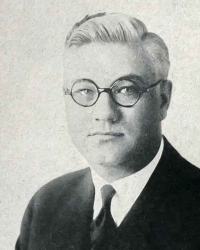 George Linus Cobb (August 31, 1886 – December 25, 1942) was an American composer. He composed over 200 pieces of music, including ragtimes, marches, and waltzes. He also wrote columns for music trade publicationsCobb attended the School of Harmony and Composition at Syracuse University in 1905, and his compositions began soon thereafter.Cobb collaborated with lyricist Jack Yellen on many early songs, and in 1950 Billboard described Cobb as a "roving music teacher" during Yellen's sophomore year in college. They sold their first big hit, All Aboard for Dixieland, for $100 in 1913, but the two had been writing songs as early as 1909, beginning with Moonlight Makes Me Lonesome For A Girl Like You.
George Linus Cobb (August 31, 1886 – December 25, 1942) was an American composer. He composed over 200 pieces of music, including ragtimes, marches, and waltzes. He also wrote columns for music trade publicationsCobb attended the School of Harmony and Composition at Syracuse University in 1905, and his compositions began soon thereafter.Cobb collaborated with lyricist Jack Yellen on many early songs, and in 1950 Billboard described Cobb as a "roving music teacher" during Yellen's sophomore year in college. They sold their first big hit, All Aboard for Dixieland, for $100 in 1913, but the two had been writing songs as early as 1909, beginning with Moonlight Makes Me Lonesome For A Girl Like You.
Ludwig van Beethoven
 Ludwig van Beethoven (/ˈlʊdvɪɡ væn ˈbeɪt(h)oʊvən/ (About this soundlisten); German: (About this soundlisten); baptised 17 December 1770 – 26 March 1827) was a German composer and pianist. A crucial figure in the transition between the classical and romantic eras in classical music, he remains one of the most recognized and influential musicians of this period, and is considered to be one of the greatest composers of all time.
Ludwig van Beethoven (/ˈlʊdvɪɡ væn ˈbeɪt(h)oʊvən/ (About this soundlisten); German: (About this soundlisten); baptised 17 December 1770 – 26 March 1827) was a German composer and pianist. A crucial figure in the transition between the classical and romantic eras in classical music, he remains one of the most recognized and influential musicians of this period, and is considered to be one of the greatest composers of all time.Beethoven was born in Bonn, the capital of the Electorate of Cologne, and part of the Holy Roman Empire. He displayed his musical talents at an early age and was vigorously taught by his father Johann van Beethoven, and was later taught by composer and conductor Christian Gottlob Neefe. At age 21, he moved to Vienna and studied composition with Joseph Haydn. Beethoven then gained a reputation as a virtuoso pianist, and was soon courted by Prince Lichnowsky for compositions, which resulted in Opus 1 in 1795.
Irving Berlin
 Irving Berlin (May 11, 1888 – September 22, 1989) was a Russian-born American composer and lyricist, and one of the most prolific American songwriters in history. Berlin was one of the few Tin Pan Alley/Broadway songwriters who wrote both lyrics and music for his songs. Although he never learned to read music beyond a rudimentary level, with the help of various uncredited musical assistants or collaborators, he eventually composed over 3,000 songs, many of which (e.g. "God Bless America", "White Christmas", "Anything You Can Do", "There's No Business Like Show Business") left an indelible mark on music and culture worldwide. He composed seventeen film scores and twenty-one Broadway scores.
Irving Berlin (May 11, 1888 – September 22, 1989) was a Russian-born American composer and lyricist, and one of the most prolific American songwriters in history. Berlin was one of the few Tin Pan Alley/Broadway songwriters who wrote both lyrics and music for his songs. Although he never learned to read music beyond a rudimentary level, with the help of various uncredited musical assistants or collaborators, he eventually composed over 3,000 songs, many of which (e.g. "God Bless America", "White Christmas", "Anything You Can Do", "There's No Business Like Show Business") left an indelible mark on music and culture worldwide. He composed seventeen film scores and twenty-one Broadway scores.
Peter Cincotti
 Peter Cincotti (born July 11, 1983) is an American singer-songwriter. He began playing piano at the age of three. While in high school, he regularly performed in clubs throughout Manhattan. In 2003, Cincotti's debut album, produced by Phil Ramone, reached No. 1 on the Billboard jazz chart, making Cincotti the youngest musician to do so. This led to performances at Carnegie Hall, Lincoln Center, Radio City Music Hall, L'Olympia, Queen Elizabeth Hall, and the Montreux Jazz Festival where he won an award in the piano competition. Cincotti's style blends pop, rock, blues, and jazz.
Peter Cincotti (born July 11, 1983) is an American singer-songwriter. He began playing piano at the age of three. While in high school, he regularly performed in clubs throughout Manhattan. In 2003, Cincotti's debut album, produced by Phil Ramone, reached No. 1 on the Billboard jazz chart, making Cincotti the youngest musician to do so. This led to performances at Carnegie Hall, Lincoln Center, Radio City Music Hall, L'Olympia, Queen Elizabeth Hall, and the Montreux Jazz Festival where he won an award in the piano competition. Cincotti's style blends pop, rock, blues, and jazz.
Frank Sinatra
 Francis Albert "Frank" Sinatra (December 12, 1915 â May 14, 1998) was an American singer and actor.
Francis Albert "Frank" Sinatra (December 12, 1915 â May 14, 1998) was an American singer and actor.Beginning his musical career in the swing era with Harry James and Tommy Dorsey, Sinatra became a solo artist with great success in the early to mid-1940s, being the idol of the "bobby soxers". His professional career had stalled by the 1950s, but it was reborn in 1954 after he won the Academy Award for Best Supporting Actor.
He signed with Capitol Records and released several critically lauded albums (such as In the Wee Small Hours, Songs for Swingin' Lovers, Come Fly with Me, Only the Lonely and Nice 'n' Easy). Sinatra left Capitol to found his own record label, Reprise Records (finding success with albums such as Ring-A-Ding-Ding, Sinatra at the Sands and Francis Albert Sinatra & Antonio Carlos Jobim), toured internationally, and fraternized with the Rat Pack and President John F. Kennedy in the early 1960s. Sinatra turned 50 in 1965, recorded the retrospective September of My Years, starred in the Emmy-winning television special Frank Sinatra: A Man and His Music, and scored hits with "Strangers in the Night" and "My Way".
Sinatra attempted to weather the changing tastes in popular music, but with dwindling album sales and after appearing in several poorly received films, he retired in 1971. Coming out of retirement in 1973, he recorded several albums, scoring a hit with "(Theme From) New York, New York" in 1980, and toured both within the United States and internationally until a few years before his death in 1998.
Sinatra also forged a career as a dramatic actor, winning the Academy Award for Best Supporting Actor for his performance in From Here to Eternity, and he was nominated for the Academy Award for Best Actor for The Man with the Golden Arm. His also starred in such musicals as High Society, Pal Joey, Guys and Dolls and On the Town. Sinatra was honored with the Kennedy Center Honors in 1983 and awarded the Presidential Medal of Freedom by Ronald Reagan in 1985 and the Congressional Gold Medal in 1997. Sinatra was also the recipient of eleven Grammy Awards, including the Grammy Trustees Award, Grammy Legend Award and the Grammy Lifetime Achievement Award.
Dragon Ball
 Dragon Ball (Japanese: ドラゴンボール, Hepburn: Doragon Bōru) is a Japanese media franchise created by Akira Toriyama in 1984. The initial manga, written and illustrated by Toriyama, was serialized in Weekly Shōnen Jump from 1984 to 1995, with the 519 individual chapters collected into 42 tankōbon volumes by its publisher Shueisha. Dragon Ball was initially inspired by the classical 16th century Chinese novel Journey to the West, as well as Hong Kong martial arts films.
Dragon Ball (Japanese: ドラゴンボール, Hepburn: Doragon Bōru) is a Japanese media franchise created by Akira Toriyama in 1984. The initial manga, written and illustrated by Toriyama, was serialized in Weekly Shōnen Jump from 1984 to 1995, with the 519 individual chapters collected into 42 tankōbon volumes by its publisher Shueisha. Dragon Ball was initially inspired by the classical 16th century Chinese novel Journey to the West, as well as Hong Kong martial arts films.
Alan Silvestri
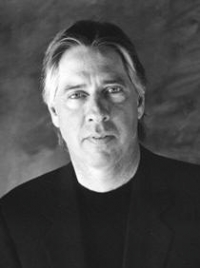 Alan Anthony Silvestri (born March 26, 1950) is an Academy Award-nominated American film score composer and conductor.
Alan Anthony Silvestri (born March 26, 1950) is an Academy Award-nominated American film score composer and conductor.estri is best known for his collaborations with director Robert Zemeckis, having scored Romancing the Stone (1984), the Back to the Future trilogy (1985, 1989, 1990), Who Framed Roger Rabbit (1988), Death Becomes Her (1992), Forrest Gump (1994), Contact (1997), Cast Away (2000), The Polar Express (2004) , Beowulf (2007) and Disney's A Christmas Carol (2009).
Silvestri is also known for his work on Predator (1987) and Predator 2 (1990), both of which are considered preeminent examples of action/sci-fi film scores. He has also begun a collaboration with director Stephen Sommers, scoring the films The Mummy Returns in 2001, Van Helsing in 2004 and G.I. Joe: The Rise of Cobra in 2009.
Silvestri also composed music for television, including for the series Starsky & Hutch, CHiPs , Manimal and HBO's Tales from the Crypt.
Silvestri was 21 years old when he started his film/televsion composing career.
His early style is marked by a strong use of the "octatonic scale," as well as an eclectic use of different notes and instruments.
It was thought that Silvestri was allegedly inspired by the works of Barry DeVorzon, Perry Botkin, Jr., Lalo Schifrin, Jerry Fielding, Jerry Goldsmith and John Williams.
Charles Gounod
 Charles-François Gounod (/ɡuːˈnoʊ/; French: ; 17 June 1818 – 17 or 18 October 1893) was a French composer, best known for his Ave Maria, based on a work by Bach, as well as his opera Faust. Another opera by Gounod that is still performed today is Roméo et Juliette.
Charles-François Gounod (/ɡuːˈnoʊ/; French: ; 17 June 1818 – 17 or 18 October 1893) was a French composer, best known for his Ave Maria, based on a work by Bach, as well as his opera Faust. Another opera by Gounod that is still performed today is Roméo et Juliette.Gounod died at Saint-Cloud in 1893, after a final revision of his twelve operas. His funeral took place ten days later at the Church of the Madeleine, with Camille Saint-Saëns playing the organ and Gabriel Fauré conducting. He was buried at the Cimetière d'Auteuil in Paris.
Prokofiev
 Sergei Sergeyevich Prokofiev (Russian: Сергей Сергеевич Прокофьев; Ukrainian: Сергій Сергійович Прокоф'єв) (27 April 1891 – 5 March 1953) was a Russian composer, pianist and conductor who mastered numerous musical genres and came to be admired as one of the greatest composers of the 20th century.
Sergei Sergeyevich Prokofiev (Russian: Сергей Сергеевич Прокофьев; Ukrainian: Сергій Сергійович Прокоф'єв) (27 April 1891 – 5 March 1953) was a Russian composer, pianist and conductor who mastered numerous musical genres and came to be admired as one of the greatest composers of the 20th century.Prokofiev was a soloist with the London Symphony Orchestra, conducted by Piero Coppola, in the first recording of his Piano Concerto No. 3, recorded in London by His Master's Voice in June 1932. Prokofiev also recorded some of his solo piano music for HMV in Paris in February 1935; these recordings were issued on CD by Pearl and Naxos. In 1938, he conducted the Moscow Philharmonic Orchestra in a recording of the second suite from his Romeo and Juliet ballet; this performance was also later released on LP and CD. Another reported recording with Prokofiev and the Moscow Philharmonic was of the First Violin Concerto with David Oistrakh as soloist; Everest Records later released this recording on an LP.
Scarlatti
Giuseppe Domenico Scarlatti was an Italian composer. He is classified primarily as a Baroque composer chronologically, although his music was influential in the development of the Classical style and he was one of the few Baroque composers to transition into the classical period.
Enrique Iglesias
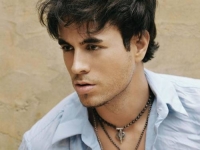 Enrique Miguel Iglesias Preysler (born May 8, 1975) is a Spanish-Filipino pop singer-songwriter. His career started in Mexico on Indie label Fonovisa who helped turn him into one of the most popular artists in Latin America and in the Latin market in the United States, selling more Spanish albums than any other artists in that period of time. Before the turn of the millennium he made a crossover into the mainstream English market and signed a unique multi-album deal with Universal Music for an unprecedented $48,000,000, with Universal Music Latino to release his Spanish albums and Interscope to release English albums, Enrique Iglesias has so far sold over 50.000.000 albums worldwide. Iglesias has had two Billboard Hot 100 #1s and one #3, and he holds the record for producing eighteen number #1 Spanish-language singles on the Billboard's Hot Latin Tracks.
Enrique Miguel Iglesias Preysler (born May 8, 1975) is a Spanish-Filipino pop singer-songwriter. His career started in Mexico on Indie label Fonovisa who helped turn him into one of the most popular artists in Latin America and in the Latin market in the United States, selling more Spanish albums than any other artists in that period of time. Before the turn of the millennium he made a crossover into the mainstream English market and signed a unique multi-album deal with Universal Music for an unprecedented $48,000,000, with Universal Music Latino to release his Spanish albums and Interscope to release English albums, Enrique Iglesias has so far sold over 50.000.000 albums worldwide. Iglesias has had two Billboard Hot 100 #1s and one #3, and he holds the record for producing eighteen number #1 Spanish-language singles on the Billboard's Hot Latin Tracks.
Elfen Lied
 Elfen Lied (エルフェンリート Erufen Rīto?) is a Japanese manga series created by manga author Lynn Okamoto. A thirteen-episode anime television series adaptation based on the manga was produced by the studio ARMS and broadcast on TV Tokyo from July to October 2004; the anime was later licensed in North America on DVD by ADV Films. The anime started before the manga was complete; as a result, the plot differed between the two, especially towards the ending of the story. In 2005, a special original video animation, written to occur between the tenth and eleventh episodes of the series, was released. The title is German for "Elf Song" and takes its name from the poem "Elfenlied".
Elfen Lied (エルフェンリート Erufen Rīto?) is a Japanese manga series created by manga author Lynn Okamoto. A thirteen-episode anime television series adaptation based on the manga was produced by the studio ARMS and broadcast on TV Tokyo from July to October 2004; the anime was later licensed in North America on DVD by ADV Films. The anime started before the manga was complete; as a result, the plot differed between the two, especially towards the ending of the story. In 2005, a special original video animation, written to occur between the tenth and eleventh episodes of the series, was released. The title is German for "Elf Song" and takes its name from the poem "Elfenlied".Elfen Lied revolves around the interactions, views, emotions, and differences between humans and the Diclonius, a mutant species similar to humans in build but distinguishable by two horns on their head and "vectors", transparent telekinetically controlled arms that have the power to manipulate and cut objects within their reach. The series is centered on the teenage Diclonius girl "Lucy" who was rejected by humans and subsequently wants revenge.
Elfen Lied involves themes of social alienation, identity, prejudice, revenge, abuse, jealousy, regret and the value of humanity. The series employs graphic violence. So far, only the thirteen-episode anime series has been licensed in the United States, by ADV Films and in Australia, by Madman Entertainment. ADV Films said the series was one of their bestselling and "most notorious" releases of 2005.
Styx
 Styx is an American rock band. Their hit songs have included "Come Sail Away", "Babe", "Lady", "Mr. Roboto", and "Renegade." Styx is the first band to have four consecutive albums certified multi-platinum by the RIAA.
Styx is an American rock band. Their hit songs have included "Come Sail Away", "Babe", "Lady", "Mr. Roboto", and "Renegade." Styx is the first band to have four consecutive albums certified multi-platinum by the RIAA.From 1977 to 1981, Styx released four consecutive albums that have been certified Multi-Platinum (signifying at least 2 million units sold) by the RIAA: The Grand Illusion, Pieces of Eight, Cornerstone, and Paradise Theatre. They were the first band recognized to have achieved this feat when the RIAA began certifying Multi-Platinum albums in 1984.
A longstanding, oft-repeated claim in the music industry and the mainstream press is that Styx were the first band to release four consecutive triple-platinum albums, signifying at least 3 million units sold.
Current line-up:
James "J.Y." Young – Vocals, guitar, keyboards
Tommy Shaw – Vocals, guitars, mandolin, autoharp, talkbox
Todd Sucherman – Drums, percussion, vocals
Lawrence Gowan – Vocals, keyboards, guitar
Ricky Phillips – Bass guitar, vocals
Chuck Panozzo – Bass guitar, vocals
Journey
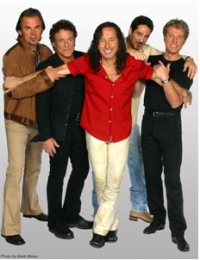 Journey is an American rock band formed in San Francisco, California in 1973.
Journey is an American rock band formed in San Francisco, California in 1973.The band has gone through several phases since its inception by former members of Santana. The band's greatest commercial success came in the late 1970s through the early 1980s with a series of power ballads and songs such as "Don't Stop Believing", "Any Way You Want It", "Faithfully", "Open Arms", "Separate Ways", and "Wheel in the Sky."
Journey has been eligible for induction into the Rock & Roll Hall of Fame since 2000, but Gregg Rolie is currently the only member of Journey who has been inducted—as a member of parent band Santana. In 2009, Steve Perry, the band's best-known lead vocalist, will be eligible for induction as a solo artist.
Current members:
Neal Schon - Lead & rhythm guitars, backing vocals, lead vocals (1973-present)
Ross Valory - Bass, backing vocals, lead vocals (1973-1985, 1995-present)
Jonathan Cain - Piano, keyboards, harmonica, rhythm guitar, backing vocals, lead vocals (1980-present)
Deen Castronovo - Drums, percussion, backing vocals, lead vocals (1998-present)
Arnel Pineda - Lead vocals (2007-present)
Evanescence
 Evanescence is an American rock band founded in Little Rock, Arkansas in 1995 by singer/pianist Amy Lee and guitarist Ben Moody.
Evanescence is an American rock band founded in Little Rock, Arkansas in 1995 by singer/pianist Amy Lee and guitarist Ben Moody.After recording two private EPs and a demo CD named Origin, with the help of Bigwig Enterprises in 2000, the band released their first full-length album, Fallen, on Wind-up Records in 2003. Fallen sold more than 15 million copies worldwide and helped the band win two Grammy Awards. A year later, Evanescence released their first live album, Anywhere but Home, which sold more than one million copies worldwide. In 2006, the band released their second studio album, The Open Door, which has sold more than four million copies.
The band has suffered several line-up changes, including co-founder Moody leaving in 2003, followed by guitarist John LeCompt and drummer Rocky Gray in 2007. Lee is now the only original member of Evanescence remaining in the band.
Luis Pedro Bedmar Estrada
 Bedmar, Luis 1932- ; 45 works in 83 publications in 2 languages and 119 library holdings · Songs and music · Author, Composer, Conductor, Editor, Compiler, ...
Bedmar, Luis 1932- ; 45 works in 83 publications in 2 languages and 119 library holdings · Songs and music · Author, Composer, Conductor, Editor, Compiler, ...
Lady Gaga
 Lady Gaga (born Stefani Joanne Angelina Germanotta on March 28, 1986) is an American recording artist. She began performing in the rock music scene of New York City's Lower East Side. She soon signed with Streamline Records, an imprint of Interscope Records, upon its establishment in 2007. During her early time at Interscope, she worked as a songwriter for fellow label artists and captured the attention of Akon, who recognized her vocal abilities, and had her also sign to his own label, Kon Live Distribution.
Lady Gaga (born Stefani Joanne Angelina Germanotta on March 28, 1986) is an American recording artist. She began performing in the rock music scene of New York City's Lower East Side. She soon signed with Streamline Records, an imprint of Interscope Records, upon its establishment in 2007. During her early time at Interscope, she worked as a songwriter for fellow label artists and captured the attention of Akon, who recognized her vocal abilities, and had her also sign to his own label, Kon Live Distribution.Her debut album, The Fame, was released on August 19, 2008. In addition to receiving generally positive reviews, it reached number-one in Canada, Austria, Germany, and Ireland and topped the Billboard Top Electronic Albums chart. Its first two singles, "Just Dance" and "Poker Face", co-written and co-produced with RedOne, became international number-one hits, topping the Hot 100 in the United States as well as other countries. The album later earned a total of six Grammy Award nominations and won awards for Best Electronic/Dance Album and Best Dance Recording. In early 2009, after having opened for New Kids on the Block and the Pussycat Dolls, she embarked on her first headlining tour, The Fame Ball Tour. By the fourth quarter of 2009, she released her second studio album The Fame Monster, with the global chart-topping lead single "Bad Romance", as well as having embarked on her second headlining tour of the year, The Monster Ball Tour.
Lady Gaga is inspired by glam rock musicians such as David Bowie and Freddie Mercury, as well as pop music artists such as Madonna and Michael Jackson. She has also stated fashion is a source of inspiration for her songwriting and performances. To date, she has sold over eight million albums and over thirty-five million singles worldwide.
Giovanni Battista Pergolesi
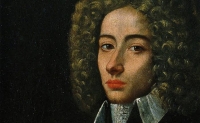 Giovanni Battista Pergolesi (4 January 1710 – 16 to 17 March 1736) was an Italian composer, violinist and organist.
Giovanni Battista Pergolesi (4 January 1710 – 16 to 17 March 1736) was an Italian composer, violinist and organist.Born at Jesi, Pergolesi studied music there under a local musician, Francesco Santini, before going to Naples in 1725, where he studied under Gaetano Greco and Francesco Feo among others. He spent most of his brief life working for aristocratic patrons like the Colonna principe di Stigliano, and duca Marzio IV Maddaloni Carafa.
Pergolesi was one of the most important early composers of opera buffa (comic opera). His opera seria, Il prigionier superbo, contained the two act buffa intermezzo, La Serva Padrona (The Servant Mistress, August 28, 1733), which became a very popular work in its own right. When it was performed in Paris in 1752, it prompted the so-called Querelle des Bouffons ("quarrel of the comedians") between supporters of serious French opera by the likes of Jean-Baptiste Lully and Jean-Philippe Rameau and supporters of new Italian comic opera. Pergolesi was held up as a model of the Italian style during this quarrel, which divided Paris's musical community for two years.
Nino Rota
 Nino Rota (December 3, 1911, Milan – April 10, 1979, Rome) was a world-renowned Italian composer and academic who is best known for his film scores, notably for the films of Federico Fellini and Luchino Visconti. He also composed the music for two of Franco Zeffirelli's Shakespeare films, and for the first two films of Francis Ford Coppola's Godfather trilogy.
Nino Rota (December 3, 1911, Milan – April 10, 1979, Rome) was a world-renowned Italian composer and academic who is best known for his film scores, notably for the films of Federico Fellini and Luchino Visconti. He also composed the music for two of Franco Zeffirelli's Shakespeare films, and for the first two films of Francis Ford Coppola's Godfather trilogy.During his long career Rota was an extraordinarily prolific composer, especially of music for the cinema. He wrote more than 150 scores for Italian and international productions from the 1930s until his death in 1979—an average of three scores each year over a 46 year period, and in his most productive period from the late 1940s to the mid-1950s he wrote as many as ten scores every year, and sometimes more, with a remarkable thirteen film scores to his credit in 1954. Alongside this great body film work, he composed ten operas, five ballets and dozens of other orchestral, choral and chamber works, the best known being his string concerto. He also composed the music for many theatre productions by Visconti, Zeffirelli and Eduardo de Filippo as well as maintaining a long teaching career at the Liceo Musicale in Bari, Italy, where he was the director for almost 30 years.
Lucas Allen
Allen Lucas, a classical guitar teacher, arranger and performer here in the Philippines, I study classical
guitar at Philippine Women's University taking up Music Teacher Diploma Major in Classical Guitar. aside
from being a classical guitar teacher and performer, I am also a Music Copyist.
guitar at Philippine Women's University taking up Music Teacher Diploma Major in Classical Guitar. aside
from being a classical guitar teacher and performer, I am also a Music Copyist.
Miles Davis
 Miles Dewey Davis III (May 26, 1926 – September 28, 1991) was an American trumpeter, bandleader, and composer.
Miles Dewey Davis III (May 26, 1926 – September 28, 1991) was an American trumpeter, bandleader, and composer.Widely considered one of the most influential musicians of the 20th century, Miles Davis was, with his musical groups, at the forefront of several major developments in jazz music, including bebop, cool jazz, hard bop, modal jazz, and jazz fusion. Many well-known musicians rose to prominence as members of Davis' ensembles, including saxophonists Gerry Mulligan, John Coltrane, Cannonball Adderley, George Coleman, Wayne Shorter, Dave Liebman, Branford Marsalis and Kenny Garrett; trombonist J. J. Johnson; pianists Horace Silver, Red Garland, Wynton Kelly, Bill Evans, Herbie Hancock, Joe Zawinul, Chick Corea, and Keith Jarrett; guitarists John McLaughlin, Pete Cosey, John Scofield and Mike Stern; bassists Paul Chambers, Ron Carter, Dave Holland, Marcus Miller and Darryl Jones ; and drummers Philly Joe Jones, Jimmy Cobb, Tony Williams, Billy Cobham, Jack DeJohnette, and Al Foster.
On October 7, 2008, his album Kind of Blue, released in 1959, received its fourth platinum certification from the RIAA, signifying sales of 4 million copies. Miles Davis was inducted into the Rock and Roll Hall of Fame in 2006. Davis was noted as "one of the key figures in the history of jazz".
On November 5, 2009, Rep. John Conyers of Michigan sponsored a measure in the US House of Representatives to recognize and commemorate the album Kind of Blue on its 50th anniversary. The measure also affirms jazz as a national treasure and "encourages the United States government to preserve and advance the art form of jazz music." It passed, unanimously, with a vote of 409–0 on December 15, 2009.
Des'ree
Desirée Annette Weekes (born 30 November 1968), known by her stage name Des'ree (/ˈdɛz(ə)reɪ/), is an English pop recording artist who rose to popularity during the 1990s. She is best known for her hits "Feel So High", "You Gotta Be", "Life", and "Kissing You" (from the soundtrack of the film Romeo + Juliet). At the 1999 Brit Awards she received the Brit Award for Best British female solo artist.
Andrew Lloyd Webber
 Andrew Lloyd Webber, Baron Lloyd-Webber (born 22 March 1948) is an English composer of musical theatre, the elder son of organist William Lloyd Webber and brother of the cellist Julian Lloyd Webber. Lloyd Webber started composing at the age of six, and published his first piece at the age of nine.
Andrew Lloyd Webber, Baron Lloyd-Webber (born 22 March 1948) is an English composer of musical theatre, the elder son of organist William Lloyd Webber and brother of the cellist Julian Lloyd Webber. Lloyd Webber started composing at the age of six, and published his first piece at the age of nine.Lloyd Webber has achieved great popular success, with several musicals that have run for more than a decade both in the West End and on Broadway. He has composed 13 musicals, a song cycle, a set of variations, two film scores, and a Latin Requiem Mass. He has also gained a number of honours, including a knighthood in 1992, followed by a peerage from the British Government for services to Music, seven Tony Awards (and 40 nominations), three Grammy Awards (with an additional 60 nominations), an Academy Award (two other nominations), seven Olivier Awards (with 100 nominations), a Golden Globe, and the Kennedy Center Honors in 2006. Several of his songs, notably "The Music of the Night" from The Phantom of the Opera, "I Don't Know How to Love Him" from Jesus Christ Superstar, "Don't Cry for Me, Argentina" from Evita, "Any Dream Will Do" from Joseph and the Amazing Technicolor Dreamcoat and "Memory" from Cats have been widely recorded and were hits outside of their parent musicals. His company, the Really Useful Group, is one of the largest theatre operators in London.
Producers in several parts of the UK have staged productions, including national tours, of Lloyd Webber's musicals under licence from the Really Useful Group. According to britishhitsongwriters.com, he is the one hundredth most successful songwriter in U.K. singles chart history, based on weeks that his compositions have spent on the chart.
Edward L.Stauff
 Organist, choir director, composer and arranger. View the Wikipedia article on Edward L. Stauff. List of choral works. No works currently ...
Organist, choir director, composer and arranger. View the Wikipedia article on Edward L. Stauff. List of choral works. No works currently ...
Huub de Lange
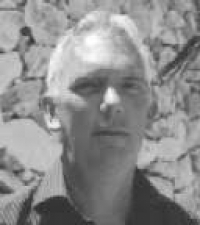 Huub de Lange was born in 1955, in Groningen, the Netherlands. He lives in Vinkeveen, a village near Amsterdam. Except for a Stabat Mater, his recent works include a Requiem, a Magnificat, a Missa Brevis, as well as choral partsongs (both in English and in German). You can find a list of his choral works at
Huub de Lange was born in 1955, in Groningen, the Netherlands. He lives in Vinkeveen, a village near Amsterdam. Except for a Stabat Mater, his recent works include a Requiem, a Magnificat, a Missa Brevis, as well as choral partsongs (both in English and in German). You can find a list of his choral works at
Marco Borsato
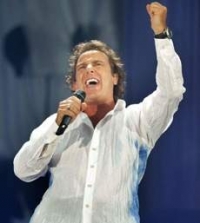 Marco Roberto Borsato (born December 21, 1966) is a popular Dutch singer, previously performing in Italian only to be recognised by the mainstream public when switching to Dutch in 1994. He is married to Leontine Ruiters and has three children.
Marco Roberto Borsato (born December 21, 1966) is a popular Dutch singer, previously performing in Italian only to be recognised by the mainstream public when switching to Dutch in 1994. He is married to Leontine Ruiters and has three children.Marco debuted as a singer after he won the Dutch Soundmixshow programme on April 7, 1990 with his rendition of the song At This Moment by Billy Vera.
He had three albums in Italian and became popular with a larger audience when he brought out a Dutch-language album and the single "Dromen Zijn Bedrog" reached number one in the Dutch charts.
Many of his songs are actually Dutch covers or adaptations of Italian songs, (for example by Riccardo Fogli, Giorgia, Riccardo Cocciante and Zucchero). In particular, he had quite a success with an adaptation of Margherita by Riccardo Cocciante.
Bryan Adams
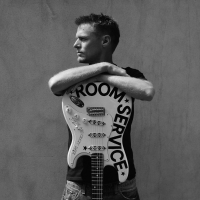 Bryan Adams (born Bryan Guy Adams on November 5, 1959) is Grammy Award-winning Canadian singer-songwriter. As of 2008, Adams has released eleven studio albums and 16 albums overall. He has been nominated for 3 Academy Awards and 5 Golden Globes for song writing in motion pictures.
Bryan Adams (born Bryan Guy Adams on November 5, 1959) is Grammy Award-winning Canadian singer-songwriter. As of 2008, Adams has released eleven studio albums and 16 albums overall. He has been nominated for 3 Academy Awards and 5 Golden Globes for song writing in motion pictures.Adams is a Grammy Award-winning Canadian singer-songwriter. Adams' career was launched with his 1980 debut album Bryan Adams, a rock album that garned limited success. His fourth album Reckless was released in 1984 with sales more then five million copies sold in the United States. In 1991, he released Waking Up the Neighbours which debuted at number one on several national music charts. The album reached sales of more than 10 million units worldwide, which 3 million copies was sold in the United States.
Beatrice Bush Bixler
 Beatrice Bush Bixler has been lauded for her insightful and inspiration lyrics and her hauntingly exquisite chording by musicians and faithful Christians far ...
Beatrice Bush Bixler has been lauded for her insightful and inspiration lyrics and her hauntingly exquisite chording by musicians and faithful Christians far ...
Deep Purple
 Deep Purple are an English rock band formed in Hertford in 1968. Along with Led Zeppelin and Black Sabbath, they are considered to be among the pioneers of heavy metal and modern hard rock, although some band members have tried not to categorise themselves as any one genre. The band also incorporated classical music, blues-rock, pop and progressive rock elements. They were once listed by the Guinness Book of World Records as the world's loudest band, and have sold over 100 million albums worldwide. Deep Purple were ranked #22 on VH1's Greatest Artists of Hard Rock programme.
Deep Purple are an English rock band formed in Hertford in 1968. Along with Led Zeppelin and Black Sabbath, they are considered to be among the pioneers of heavy metal and modern hard rock, although some band members have tried not to categorise themselves as any one genre. The band also incorporated classical music, blues-rock, pop and progressive rock elements. They were once listed by the Guinness Book of World Records as the world's loudest band, and have sold over 100 million albums worldwide. Deep Purple were ranked #22 on VH1's Greatest Artists of Hard Rock programme.The band have gone through many line-up changes and an eight-year hiatus (1976–84). The 1968–76 line-ups are commonly labeled Mark I, II, III and IV. Their second and most commercially successful line-up featured Ian Gillan (vocals), Ritchie Blackmore (guitar), Jon Lord (keyboards), Roger Glover (bass) and Ian Paice (drums). This line-up was active from 1969 to 1973 and was revived from 1984 to 1989 and again in 1993, before the rift between Blackmore and other members became unbridgeable. The current line-up including guitarist Steve Morse has been much more stable, though Lord's retirement in 2002 has left Paice as the only original member.
Mozart
 Wolfgang Amadeus Mozart, full name Johann Chrysostom Wolfgang Amadeus Mozart (27 January 1756 â 5 December 1791) was a prolific and influential composer of the Classical era. His over 600 compositions include works widely acknowledged as pinnacles of symphonic, concertante, chamber, piano, operatic, and choral music. Mozart is among the most enduringly popular of classical composers, and many of his works are part of the standard concert repertoire.
Wolfgang Amadeus Mozart, full name Johann Chrysostom Wolfgang Amadeus Mozart (27 January 1756 â 5 December 1791) was a prolific and influential composer of the Classical era. His over 600 compositions include works widely acknowledged as pinnacles of symphonic, concertante, chamber, piano, operatic, and choral music. Mozart is among the most enduringly popular of classical composers, and many of his works are part of the standard concert repertoire.Mozart's music, like Haydn's, stands as an archetypal example of the Classical style. His works spanned the period during which that style transformed from one exemplified by the style galant to one that began to incorporate some of the contrapuntal complexities of the late Baroque, complexities against which the galant style had been a reaction. Mozart's own stylistic development closely paralleled the development of the classical style as a whole. In addition, he was a versatile composer and wrote in almost every major genre, including symphony, opera, the solo concerto, chamber music including string quartet and string quintet, and the piano sonata. While none of these genres were new, the piano concerto was almost single-handedly developed and popularized by Mozart. He also wrote a great deal of religious music, including masses; and he composed many dances, divertimenti, serenades, and other forms of light entertainment.
The central traits of the classical style can be identified in Mozart's music. Clarity, balance, and transparency are hallmarks of his work.
S. Y. Ramos
 S. Y. Ramos composer.
S. Y. Ramos composer.
Stone Sour
 Stone Sour is an American rock band formed in Des Moines, Iowa, in 1992. The band performed for five years before disbanding in 1997. They reunited in 2000 and since 2015, the group has consisted of Corey Taylor, Josh Rand, Christian Martucci, Johny Chow and Roy Mayorga.
Stone Sour is an American rock band formed in Des Moines, Iowa, in 1992. The band performed for five years before disbanding in 1997. They reunited in 2000 and since 2015, the group has consisted of Corey Taylor, Josh Rand, Christian Martucci, Johny Chow and Roy Mayorga.
Yasuroni Mitsuda
 Yasunori Mitsuda is a Japanese composer, musician, and sound producer. He is best known for his work in video games, primarily for the Chrono, Xeno, Shadow Hearts, and Inazuma Eleven franchises, among various others.
Yasunori Mitsuda is a Japanese composer, musician, and sound producer. He is best known for his work in video games, primarily for the Chrono, Xeno, Shadow Hearts, and Inazuma Eleven franchises, among various others.
Astor Piazzolla
 Ástor Pantaleón Piazzolla (March 11, 1921 – July 4, 1992) was an Argentine tango composer and bandoneón player. His oeuvre revolutionized the traditional tango into a new style termed nuevo tango, incorporating elements from jazz and classical music. An excellent bandoneonist, he regularly performed his own compositions with different ensembles.
Ástor Pantaleón Piazzolla (March 11, 1921 – July 4, 1992) was an Argentine tango composer and bandoneón player. His oeuvre revolutionized the traditional tango into a new style termed nuevo tango, incorporating elements from jazz and classical music. An excellent bandoneonist, he regularly performed his own compositions with different ensembles.Piazzolla's nuevo tango was distinct from the traditional tango in its incorporation of elements of jazz, its use of extended harmonies and dissonance, its use of counterpoint, and its ventures into extended compositional forms. As Argentine psychoanalyst Carlos Kuri has pointed out, Piazzolla's fusion of tango with this wide range of other recognizable Western musical elements was so successful that it produced a new individual style transcending these influences. It is precisely this success, and individuality, that makes it hard to pin down where particular influences reside in his compositions, but some aspects are clear. The use of the passacaglia technique of a circulating bass line and harmonic sequence, invented and much used in 17th and 18th century baroque music but also central to the idea of jazz "changes", predominates in most of Piazzolla's mature compositions. Another clear reference to the baroque is the often complex and virtuosic counterpoint that sometimes follows strict fugal behavior but more often simply allows each performer in the group to assert his voice. A further technique that emphasises this sense of democracy and freedom among the musicians is improvisation that is borrowed from jazz in concept, but in practice involves a different vocabulary of scales and rhythms that stay within the parameters of the established tango sound-world. Pablo Ziegler has been particularly responsible for developing this aspect of the style both within Piazzolla's groups and since the composer's death.
Seymour Simons
 Seymour Simons was an American pianist, composer, orchestra leader, and radio producer. Simons was originally trained in engineering and went to work as a research engineer at a Detroit motor plant, ...
Seymour Simons was an American pianist, composer, orchestra leader, and radio producer. Simons was originally trained in engineering and went to work as a research engineer at a Detroit motor plant, ...
Cole Porter
 Cole Albert Porter (June 9, 1891 – October 15, 1964) was an American composer and songwriter. His works include the musical comedies Kiss Me, Kate, Fifty Million Frenchmen, DuBarry Was a Lady and Anything Goes, as well as songs like "Night and Day", "I Get a Kick out of You", "Well, Did You Evah!" and "I've Got You Under My Skin". He was noted for his sophisticated, bawdy lyrics, clever rhymes and complex forms. Porter was one of the greatest contributors to the Great American Songbook. Cole Porter is one of the few Tin Pan Alley composers to have written both the lyrics and the music for his songs.
Cole Albert Porter (June 9, 1891 – October 15, 1964) was an American composer and songwriter. His works include the musical comedies Kiss Me, Kate, Fifty Million Frenchmen, DuBarry Was a Lady and Anything Goes, as well as songs like "Night and Day", "I Get a Kick out of You", "Well, Did You Evah!" and "I've Got You Under My Skin". He was noted for his sophisticated, bawdy lyrics, clever rhymes and complex forms. Porter was one of the greatest contributors to the Great American Songbook. Cole Porter is one of the few Tin Pan Alley composers to have written both the lyrics and the music for his songs.
Search for Free Sheet Music
You can make a search through the entire collection of sheets.
You can make a search through the entire collection of sheets.













































































































































































































